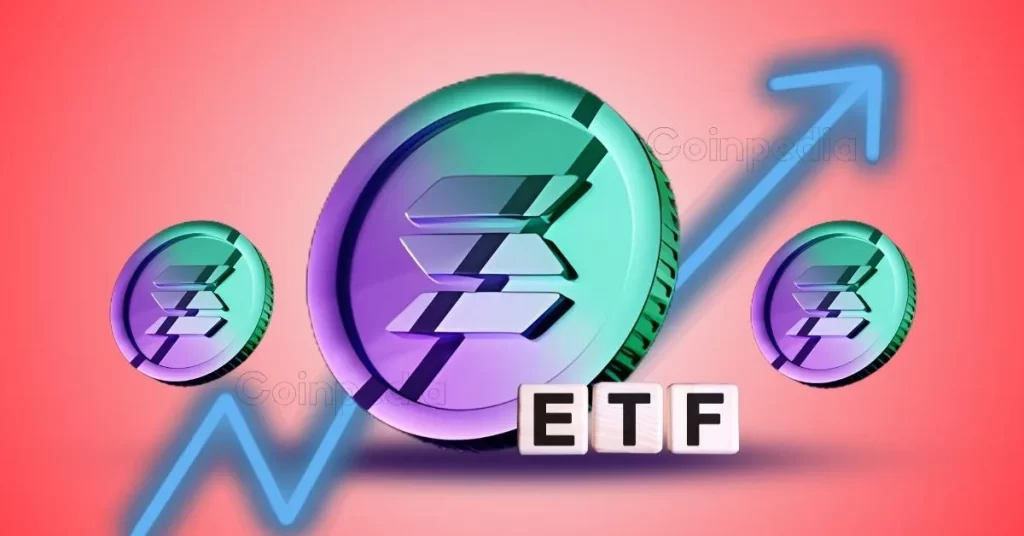
Cardano has launched Cardinal, a new protocol aimed at connecting Bitcoin to the Cardano decentralised finance (DeFi) ecosystem.
The announcement, made by Cardano founder Charles Hoskinson on 9 June during the Bitcoin 2025 conference, marks a strategic shift to draw liquidity from Bitcoin’s vast network into Cardano’s smart contract infrastructure.
Welcome to the first Bitcoin DeFi protocol developed for Cardano
Cardinal enables users to lend, borrow, and stake Bitcoin without leaving the native Bitcoin chain or using traditional custodians.
The launch comes as Cardano’s DeFi total value locked (TVL) has dropped from $415 million in May to $334 million as of 10 June, according to DefiLlama.
Bitcoin DeFi integration without bridges or custodians
Cardinal is designed to bring Bitcoin into the DeFi space by wrapping unspent transaction outputs (UTXOs) and converting them into tokens that are pegged 1:1 with Bitcoin.
This lets Bitcoin holders use their assets on Cardano’s platform without relying on centralised bridges or custodians. The process is trust-minimised, allowing users to reclaim their Bitcoin at any time through a secure and verifiable method.
Unlike traditional wrapped BTC protocols that often depend on a central authority, Cardinal operates using MuSig2, a multi-signature cryptographic scheme.
This technique enables multiple participants to cooperatively sign transactions, while maintaining Bitcoin’s security guarantees.
As long as at least one party in the network behaves honestly, the system remains secure, and the wrapped Bitcoin stays locked on the native chain.
No rehypothecation, more asset control for users
One of Cardinal’s main differentiators is its stance on rehypothecation. In many financial systems, custodians re-use deposited assets—often without full user awareness.
Cardinal eliminates this risk by preventing intermediaries from controlling user assets, giving holders complete visibility and ownership throughout the DeFi process.
Cardinal’s smart contract framework avoids unnecessary centralisation by leveraging BitVMX—an off-chain computation protocol.
BitVMX allows users to perform complex operations involving Bitcoin, without needing to compromise on decentralisation.
When paired with Cardano’s Plutus smart contracts, this configuration allows seamless asset movement between the two blockchains.
Live BTC-Cardano transfer demo showcases use case
At the Bitcoin 2025 event, Input Output (IO), the research and development firm behind Cardano, demonstrated a bridgeless BTC-to-Cardano asset transfer using Cardinal and BitVMX.
The live demonstration served as a proof-of-concept, underscoring Cardinal’s capacity to bring Bitcoin-native liquidity to Cardano’s DeFi platforms.
This move comes at a time when Cardano is aiming to boost its TVL and regain DeFi traction. According to DefiLlama, Cardano’s DeFi market has seen a decline in locked value since its May peak.
By offering Bitcoin users direct DeFi access without leaving their native network, Cardinal could provide the liquidity injection needed to revive activity on the Cardano chain.
Market impact and future roadmap
Cardano’s DeFi infrastructure has historically struggled to match Ethereum’s or Solana’s dominance. However, Cardinal represents a new model for integrating Bitcoin in a non-custodial, decentralised way.
The protocol not only enables secure lending and borrowing with wrapped Bitcoin, but also introduces interoperability across ecosystems—one of the key bottlenecks for DeFi expansion.
Input Output has not yet announced a full-scale rollout date but plans to continue testing Cardinal under real-world conditions.
The team will likely focus on increasing Cardinal’s adoption among Bitcoin users looking for DeFi exposure without compromising on custody or decentralisation.
The move also reflects a broader trend in the DeFi space, where newer protocols are prioritising asset sovereignty, cryptographic security, and interoperability.
If successful, Cardinal could set a precedent for how major blockchain ecosystems integrate Bitcoin, and how Bitcoin evolves from a passive store of value to an active player in decentralised finance.
The post Cardano unveils Cardinal to connect Bitcoin users to $334M DeFi ecosystem appeared first on Invezz















 English (US) ·
English (US) ·